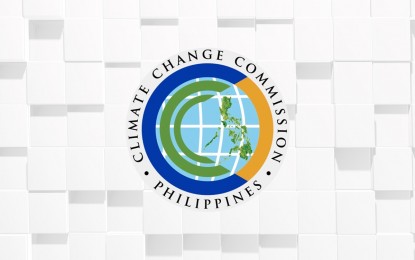
MANILA – The Climate Change Commission (CCC) on Thursday expressed support for the use of waste-to-energy (WTE) technologies to build a more climate-resilient Philippines.
In a statement, CCC Commissioner Albert dela Cruz Sr. considered the WTE projects as “pro-environment activities and investments” that could help strengthen the country’s climate resiliency.
Dela Cruz stressed the importance of taking immediate steps to address environmental issues, considering the worsening weather condition that brings at least 20 typhoons every year in the Philippines and the emergence of climate change due to “human activities,” which include the use of landfills, deforestation and burning of fossil fuels.
“Since our country is located near the equator, we have warm seas and this is where typhoons are created. In the past 10 years or so, because of global warming, we have experienced super typhoons that not only destroy property and infrastructure but cause the deaths of people and livelihood,” he said.
Dela Cruz issued the statement as he is set to join Pagsanjan, Laguna Mayor Cesar Balbuena Areza on Friday in leading the inauguration of the municipality’s bio-methanation and thermolysis machine for the proper disposal of waste.
The launching was in line with the green transition of the landfill using WTE technologies that have been endorsed by the Department of Environment and Natural Resources.
Dela Cruz lauded the Pagsanjan local government, as well as the PEDECO led by executive director Maximino Camacho, for supporting the National Climate Change Action Plan (NCCAP) of the Marcos administration.
“We need firms like PEDECO and leaders like Mayor Areza who both lead in implementing measures to reduce pollution by using WTE technologies and other alternative energies coming from solar, wind and geothermal sources,” Dela Cruz added.
In February, Senate President Juan Miguel Zubiri filed a bill seeking the establishment of a national energy policy and regulatory framework for facilities using WTE technologies that would address solid waste management problems and provide an alternative source of energy.
Based on the assessment of the Environment and Management Bureau, the Philippines is projected to generate 92 million tons of waste from 2022 to 2025.
Dela Cruz also called for the local government units’ (LGUs) closer cooperation to formulate and implement policies and measures that would help address the environmental crisis the country is currently facing.
Citing the United Nations’ report, Dela Cruz noted that global heat index has increased in the past decades, reaching to about 1.1 degrees Celsius warmer than during the 1800s.
Dela Cruz added that global heat index, based on scientific data, has registered the hottest between 2011 and 2020 as a result of changing climates across the world. (PNA)
